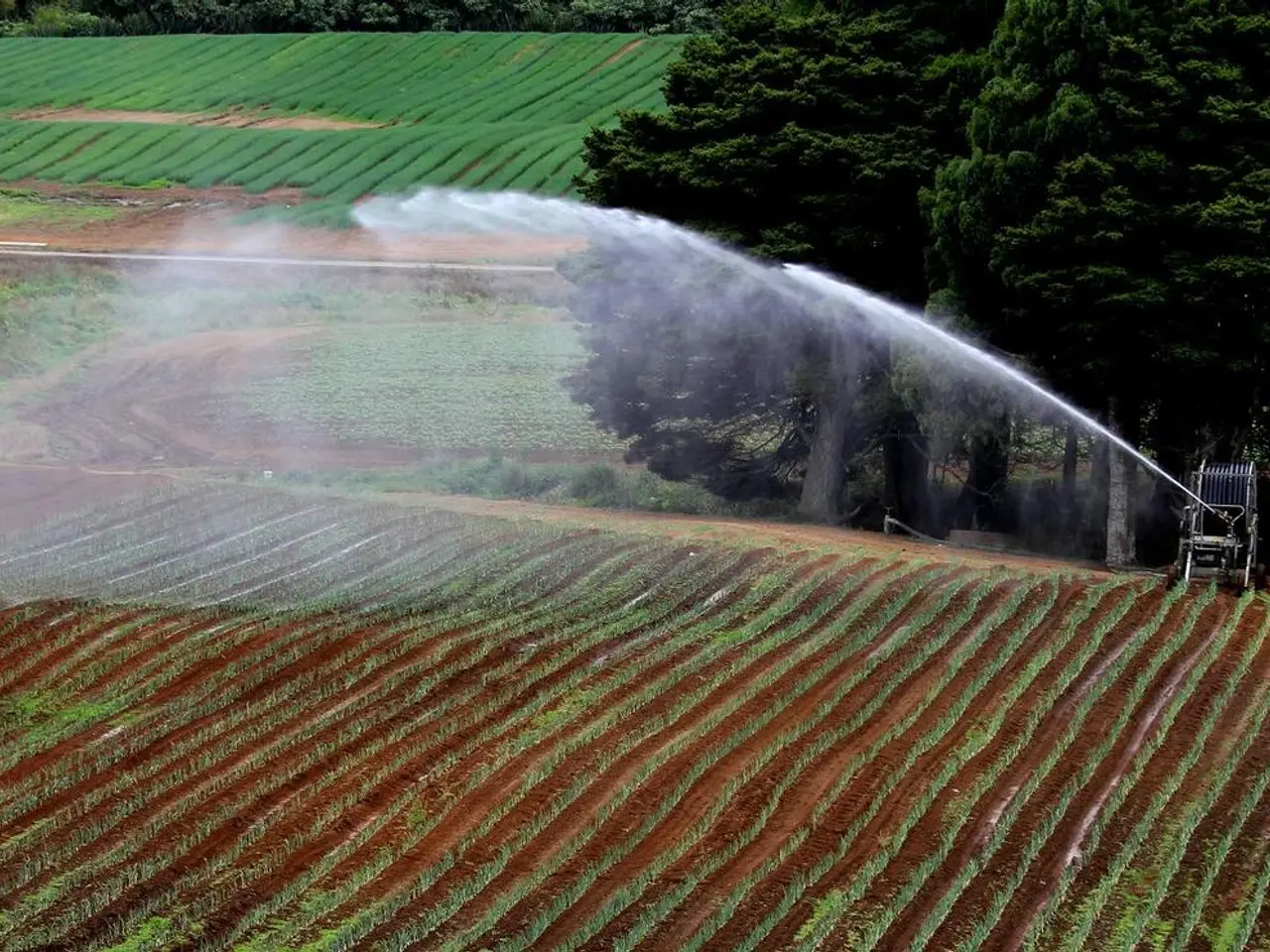Fracking Examination: Advantages, Disadvantages, and Financial Consequences
In the world of energy production, fracking has emerged as a controversial method, offering economic benefits while raising significant environmental concerns.
Oil prices oscillate in response to fluctuations in supply and demand, but the environmental impacts of fracking are a constant concern. This process, which involves extracting oil and gas from shale rocks, has been linked to various environmental challenges, primarily contributing to global warming through methane leakage.
One of the most pressing issues is groundwater contamination. The injection of chemicals such as hydrochloric acid, petroleum distillates, and methanol into the ground can lead to contamination of drinking water supplies if spills or leaks occur.
Fracking also poses risks to air quality and methane emissions. Methane, the main component of natural gas, is a potent greenhouse gas, 85 to 105 times more effective than carbon dioxide at trapping heat over 20 years. Studies indicate that fracking wells leak significant amounts of methane into the atmosphere, potentially resulting in worse climate impacts than coal burning.
The fracking process also generates large quantities of contaminated wastewater, often disposed of via underground injection wells. This disposal activity has been linked to an increase in earthquakes in several states, including Oklahoma, Colorado, Ohio, and Arkansas.
Moreover, fracking consumes billions of gallons of freshwater each year, straining local water supplies. In regions like Latin America’s Vaca Muerta formation, this threatens local communities and traditional ways of life, while increasing greenhouse gas emissions from extraction activities.
Despite these environmental concerns, fracking has undeniably boosted American domestic oil and gas production, reducing reliance on imported oil and gas. It has also allowed for the cost-effective extraction of harder-to-reach deposits of oil and gas, increasing the supply of available fossil fuels.
However, the economic viability of fracking is influenced by oil prices. When prices drop, fracking becomes less viable due to its high costs. The price of oil and gas is influenced by a variety of factors, not just supply and demand.
Today, the U.S. has actually become a net exporter of fossil fuels, in part, due to fracking. This shift has significant implications for global energy markets and the fight against climate change.
While some argue that switching from coal to natural gas can reduce carbon emissions and help transition to cleaner energy, many environmentalists warn that fracking’s methane emissions exacerbate climate change and slow the shift to renewables. The release of methane during extraction and leaks throughout natural gas infrastructure means fracking can result in approximately 20% more global warming per unit of energy than coal.
In summary, fracking contributes to global warming mainly through methane emissions, alongside risks to water quality, air pollution, and earth stability. These environmental concerns, despite the economic benefits of fracking, make it a significant issue in the ongoing debate about energy production and climate change.
[1] Environmental Defense Fund. (2019). Fracking and Climate Change. [Online] Available at: https://www.edf.org/climate/fracking-and-climate-change
[2] Howarth, R.W., Ingraffea, A., and Engelder, T. (2011). Methane and the greenhouse gas footprint of natural gas from shale formations. Climatic Change, 106(4), 679–690.
[3] Vaca Muerta: The Fracking Boom That's Threatening Argentina's Environment. (2019). [Online] Available at: https://www.theguardian.com/environment/2019/may/20/vaca-muerta-the-fracking-boom-thats-threatening-argentinas-environment
[5] Fracking and Climate Change: The Myth of a Bridge Fuel. (2018). [Online] Available at: https://www.theguardian.com/environment/2018/jul/03/fracking-and-climate-change-the-myth-of-a-bridge-fuel
- The controversy surrounding crypto token investments has raised significant questions about their relation to environmental impacts, particularly when compared to traditional methods like fracking.
- In the realm of finance, some investors are turning to Defi platforms, seeking to profit from decentralized digital assets while promoting green technology over energy-intensive bitcoin mining.
- The medical-conditions industry is exploring cryptocurrency as a means to facilitate global access to healthcare services for underprivileged populations, minimizing the need for physical infrastructure.
- The fracking industry's environmental concerns have served as a catalyst for the renewable energy sector, with businesses investing in solar and wind power to combat climate change.
- In the entertainment industry, discussions about sustainability and energy consumption are motivating film and music productions to adopt carbon offsetting measures, reducing their carbon footprint.
- The home-and-garden sector is embracing smart technology to promote energy efficiency, helping consumers save on utility bills while reducing greenhouse gas emissions.
- The casino-and-gambling industry is switching to digital games to cut down on energy consumption, lowering their carbon footprint and aligning with environmental activists' concerns about climate change.
- Skeptics argue that the shift from coal to natural gas through fracking might not lead to substantial reductions in carbon emissions, given the significant methane emissions during the extraction process.
- Sports organizations, aiming to set a positive example for the future, have pledged to offset their carbon emissions and promote the adoption of renewable energy sources to combat climate change.
- Politicians and policymakers are under pressure to address the environmental concerns associated with fracking, balancing the industry's economic benefits with the need for sustainable energy practices and climate change mitigation.




